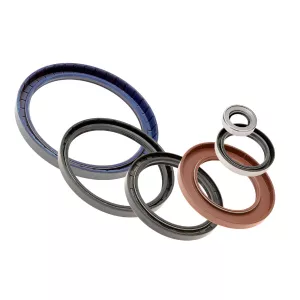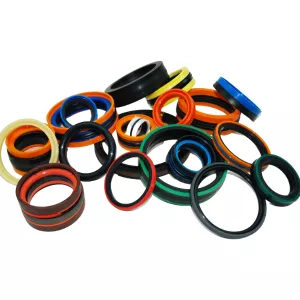The History of Hydraulics: Then to Now
Hydraulics is the technology and applied science, that uses fluid for power.
The first hydraulic systems date back thousands of years, with irrigation and water clocks being used by ancient Greeks and Egyptians, as early as 600 BC.

The Persian Empire, Roman Empire, Ancient Greek, Chinese and Arabic societies that followed, each brought their own early innovations of hydraulic machinery, such as watermills, water wheels, water turbines, mining equipment, and the first known steam engine (known as an Aeolipile).
DID YOU KNOW?
The word "hydraulics" originates from the ancient Greek word "hydraulikos" meaning water (hydor) pipe (aulos).
Hydraulic technology has come a long way since then and can be found being used in a wide variety of applications every day, across the world.
Pascal's Law
Pivotal in setting the foundations for all modern hydraulics, was gifted French mathematician, physicist, and philosopher Blaise Pascal.
In 1640's, while studying hydrodynamics, he discovered a mathematical equation, known as 'Pascal's Law', which pronounced the principle of transmission of fluid pressure.
Pascal's law realised that pressure on a fluid in a confined area, remains constant in all directions and that this force could be harnessed.
Bernoulli's Principle
Nearly a 100 years later in 1738, Swiss mathematician and physicist Daniel Bernoulli put Pascal's fluid power discovery to use by pressurising water in pumps and mills using Bernoulli's principle.
First Hydraulic Press & the Industrial Revolution
Engineers soon began experimenting with functions of the principle described in Pascal's Law. One such engineer was Englishman Joseph Bramah, who in 1795 patented a design for a hydraulic press, paving the way for the industrial revolution.
The press used a hydraulic cylinder to harness fluid power to generate a compressive force, which then was used to produce mechanical force. This was used to automate all types of manufacturing and heavy-lifting equipment, such as printing presses, cranes, and machines that involved cutting, stamping, and crushing.
From water to other fluids
While water was the first hydraulic fluid ever used, engineers soon discovered that there were better options out there, to best suit specific applications.
Oil was regarded as a better alternative for pumps and motors, as compared to water it was non-corrosive, lubricated the components, and could handle high temperature and pressure better.
Nowadays, there are a whole host of different fluids being used in hydraulics systems. Hydraulic fluids are selected based on their compatibility with the operating conditions of the application, considering qualities such as the fluid's density, viscosity, and response to heat and pressure.
Modern day hydraulics
Fast forward to modern day, hydraulic systems are used all over, in a variety of ways. From heavy plant and mining machinery, to agricultural equipment and manufacturing facilities, through to deep sea, marine and automotive applications, to hand tools and household appliances, the list goes on and on.
Innovation in the field of hydraulics continues, with new hydraulic systems and equipment being designed and tested every day.
If you need any advice regarding your hydraulic cylinder design, or help to source the seals and metal parts needed, please contact FPE Seals knowledgeable team, who would be happy to help.
What to read next...

What are Oil Seals?
Read more
What is the difference between hydraulic and pneumatic applications?
Read moreSign up to our newsletter
Don't forget to subscribe to our newsletter to receive details of our latest special offers and new products.
Darlington
Telephone: +44 (0) 1325 282732 Email: sales@fpeseals.com
Doncaster
Telephone: +44 (0) 1302727252 Email: doncaster@fpeseals.com
Aberdeen
Telephone: +44 (0) 1224648999 Email: sales@swanseals.co.uk
The Netherlands
Telephone: +31 (0) 162581060 Email: info@fpeseals.com

